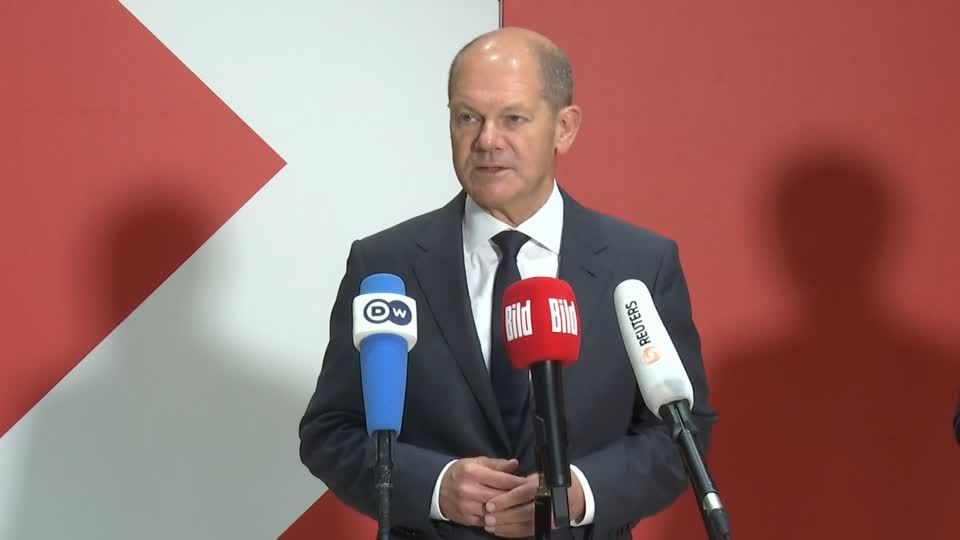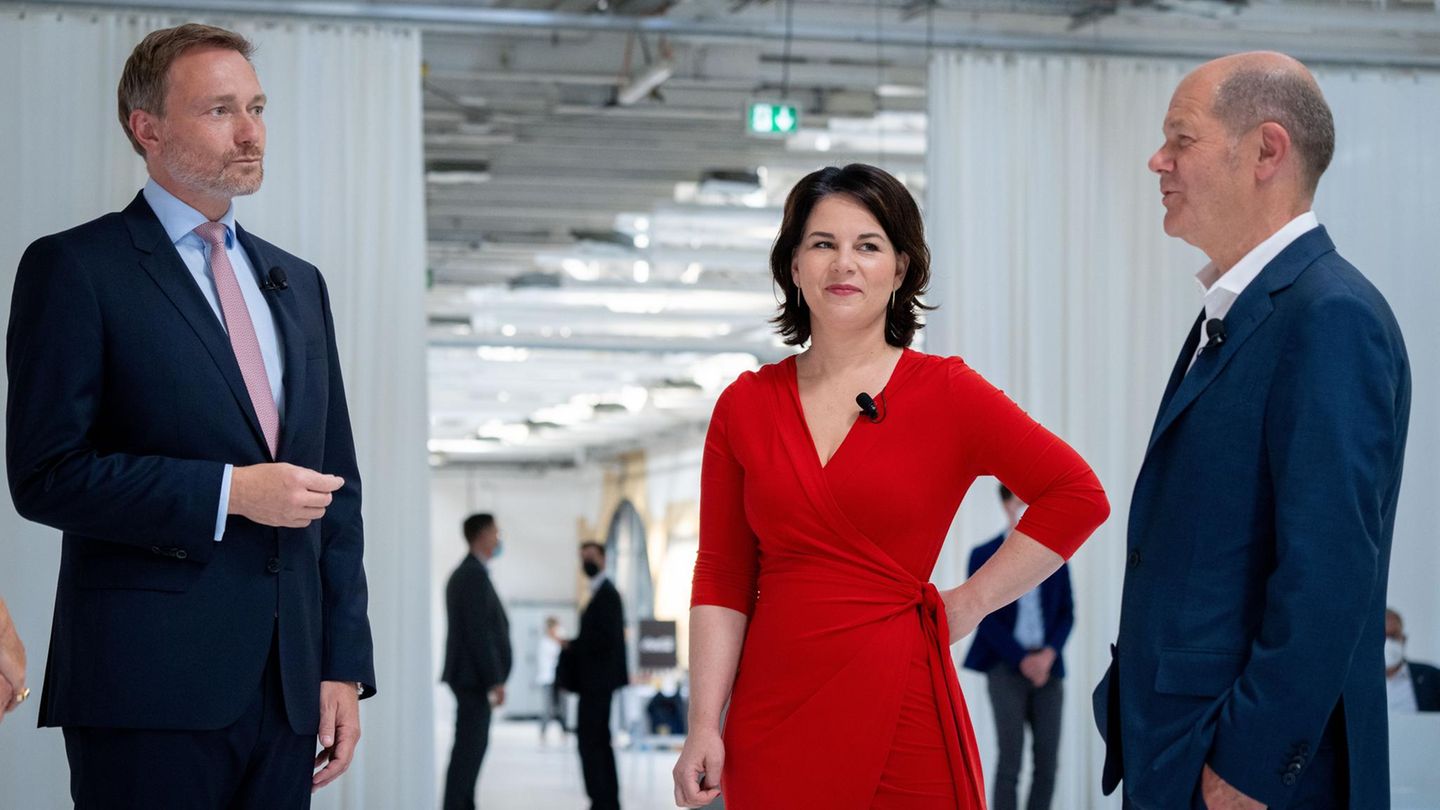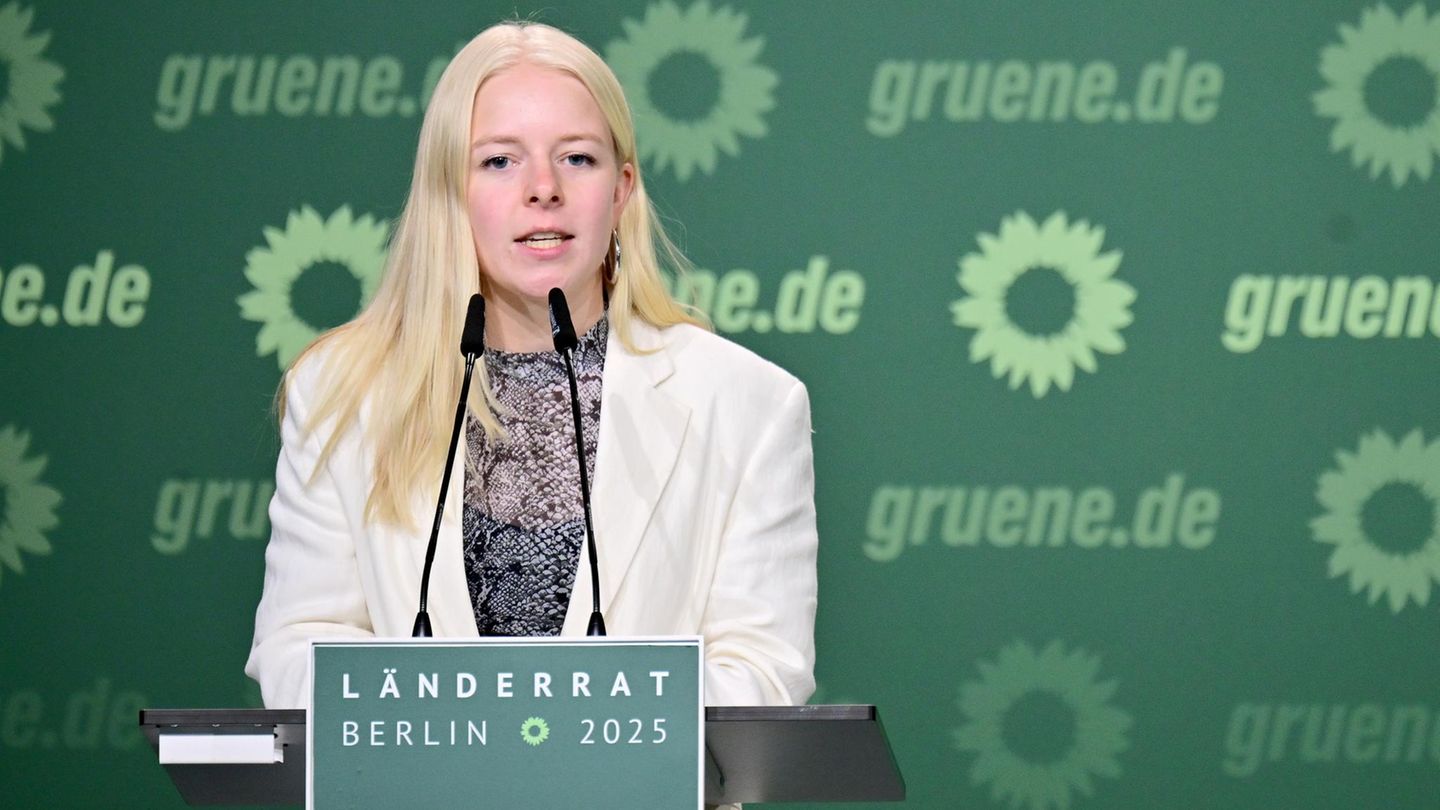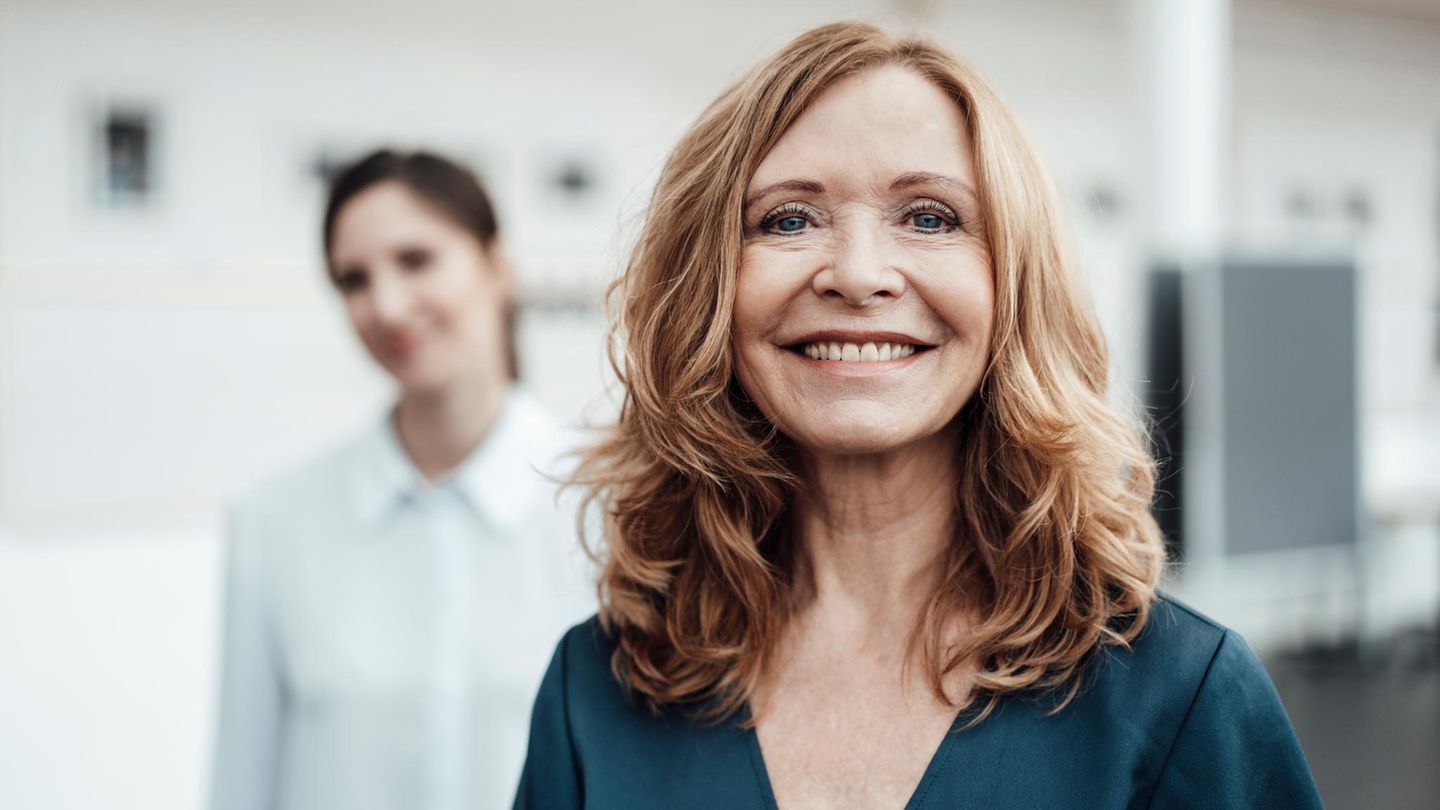After the first one-on-one discussions, the SPD, Greens and FDP are now exploring in threes. Whether the traffic light can turn green in the end depends on the ability to compromise on all sides.
Eleven days after the federal election, the SPD, Greens and FDP want to jointly explore for the first time on Thursday whether a so-called traffic light coalition could be possible. If the parties decide to hold coalition talks in the end, tough negotiations are likely to occur in some areas, while elsewhere the hurdles are less high. A selection of a few topics.
steer
A big sticking point, because this is where basic political convictions clash: the SPD and the Greens want to burden high incomes and assets more heavily, according to the principle “stronger shoulders carry more”, so that money is there for those who have little. For the FDP, however, tax increases and redistribution are red lines. Party leader Christian Lindner, who would like to become finance minister, said during the election campaign that the country’s prosperity had to be generated in the first place. The FDP wants to lower taxes for all income groups and also for companies. Their argument: the less the burden, the better the economy runs and the more taxes come in.
Solidarity surcharge
The solos, which only top earners now have to pay, should be completely abolished according to the will of the FDP. The SPD is against it. The soli as it is now is still needed and is “a fair contribution to a stable community that benefits everyone,” she argues. Possibility of compromise for the traffic light negotiators: They could postpone the topic, because at some point there will be a decision by the Federal Constitutional Court anyway on whether or not the solos may remain. The FDP had sued against it.
Debt brake
The federal and state governments should as a rule cover their expenditures without loans. This is anchored in the Basic Law and is known as the “debt brake”. The Greens are in favor of a softening in order to enable massive investments in climate protection and infrastructure. The FDP is against a softening and also has a slight advantage on the issue: A reform would mean changing the Basic Law. This is only possible with a two-thirds majority in the Bundestag and Bundesrat. Such majorities are very difficult to organize.
Stefan Kooths, economic director of the Kiel Institute for the World Economy (IfW) suspects that ways around the debt brake will be found. “These are typically outsourced investment companies with which, for example, larger infrastructure projects can be financed,” he said on ZDF.
minimum wage
The election campaign hit of SPD Chancellor candidate Olaf Scholz. He had promised an increase to twelve euros in the next year and even declared it a condition for a coalition. Scholz cannot go behind that. The Greens are also for twelve euros. Lindner had pointed out that the minimum wage was the responsibility of an independent commission made up of employers and trade unions. A traffic light is unlikely to fail on the subject. For this, however, Scholz will have to offer the FDP something elsewhere.
Climate
It will probably crunch here: Although everyone agrees that much more needs to be done when it comes to climate protection, as with taxes, there are fundamentally big differences, especially between the Greens and the FDP. The Greens want clear guidelines from the state: From 2030 only the approval of emission-free cars – the end of the classic internal combustion engine – solar system requirements for roofs, a faster increase in the CO2 price in the transport and heating sector and a faster exit from combustion of coal to generate electricity as early as 2030 instead of 2038.
The FDP rejects too much state regulation and rather relies on new technologies, incentives and an expansion of European emissions trading. Environmentally and climate-friendly engines and alternative fuels could prevail. The FDP is against a ban on internal combustion engines. All three parties agree that the expansion of green electricity from wind and sun will accelerate and that there must be faster planning processes.
Speed limit
The SPD and the Greens are on motorways for 130 km / h. The main argument is traffic safety. The climate protection effect would be added as a bonus. “The SPD and the Greens want a speed limit, the police too, even the ADAC has opened up and, above all, there is now a social majority,” said Cem Özdemir, who is part of the Greens’ expanded exploratory team, of the “Frankfurter Allgemeine Zeitung”. The FDP rejects a speed limit as “symbolic politics”. It is unclear how much the topic will become the sticking point in the discussions. Green parliamentary leader Anton Hofreiter had recently signaled willingness to talk.
Education and digitization
The parties involved could come to an agreement more quickly here. All parties are in favor of promoting digitization in administration and schools and investing in education. The Greens and FDP also see it as a mandate that they did so well in the election with young people. The FDP has long made digitization one of its top issues. The Greens also want to promote the issue, not least because digital solutions could make a contribution to conserving natural resources.

Cannabis
There could also be a quick agreement here: FDP and the Greens are in favor of legalization and “sales in licensed specialist shops”. The SPD advocates a “regulated charge” to adults initially in model projects. The Deputy Greens leader Ricarda Lang, who is also probing, wrote on Twitter on Wednesday: “To satisfy the thousands of emails in my mailbox: I am firmly thinking of the legalization of cannabis, I promise.”
David William is a talented author who has made a name for himself in the world of writing. He is a professional author who writes on a wide range of topics, from general interest to opinion news. David is currently working as a writer at 24 hours worlds where he brings his unique perspective and in-depth research to his articles, making them both informative and engaging.




